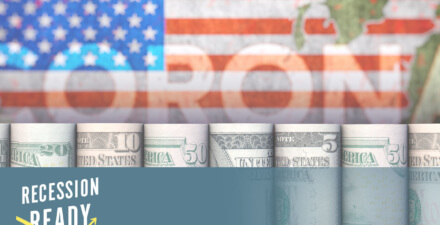How an individual or family experiences economic gains and losses can differ dramatically depending on where one lives—one’s geographic place in the United States. Economic mobility, economic growth, business dynamism, job opportunities, and other measures of economic prosperity can vary dramatically across different regions and communities. Equitable Growth seeks to better understand the reasons for these variations and explores what can be done to ensure that all Americans feel the benefits of economic growth regardless of where they call home.
Featured work
A place-based economic development strategy to foster rural U.S. prosperity
September 11, 2025
September 11, 2025
Federal and state governments can help solve the employment problems of people in distressed places to spur equitable growth
May 13, 2025
May 13, 2025
Green Energy Jobs in the US: What Are They, and Where Are They?
November 8, 2022
November 8, 2022
The inequitable consequences of ‘heat islands’ within the metropolitan areas of the United States and what to do about it
August 3, 2022
August 3, 2022
Is moving to a new place key to upward mobility for U.S. workers and their families?
February 14, 2022
February 14, 2022
Explore Content in Economics of Place229
One year later: Recession Ready and the coronavirus recession
June 1, 2020
June 1, 2020
Coronavirus recession: How to get the U.S. economy back on track
May 26, 2020
May 26, 2020
Green stimulus, not dirty bailouts, is the smart investment strategy during the coronavirus recession
May 18, 2020
May 18, 2020
For an equitable recovery, federal relief to deal with the coronavirus recession must be transparent to the U.S. public
May 13, 2020
May 13, 2020
More resilient small U.S. restaurants and their workers can exit the coronavirus recession and sustain an equitable economic recovery
May 7, 2020
May 7, 2020
Global medical trade in the time of the coronavirus pandemic
May 6, 2020
May 6, 2020
Fool Me Once: Investing in Unemployment Insurance systems to avoid the mistakes of the Great Recession during COVID-19
April 30, 2020
April 30, 2020
The coronavirus recession is severe, and the damage to the U.S. economy will last years
April 29, 2020
April 29, 2020
Early lessons learned from the U.S. Small Business Administration’s first round of lending from its Paycheck Protection Program
April 23, 2020
April 23, 2020
The coronavirus recession and economic inequality: A roadmap to recovery and long-term structural change
April 16, 2020
April 16, 2020
Rescuing small businesses to fight the coronavirus recession and prevent further economic inequality in the United States
April 14, 2020
April 14, 2020
Two things state and local governments can do to mitigate the coronavirus recession in the United States
April 2, 2020
April 2, 2020
Explore the Equitable Growth network of experts around the country and get answers to today's most pressing questions!


















